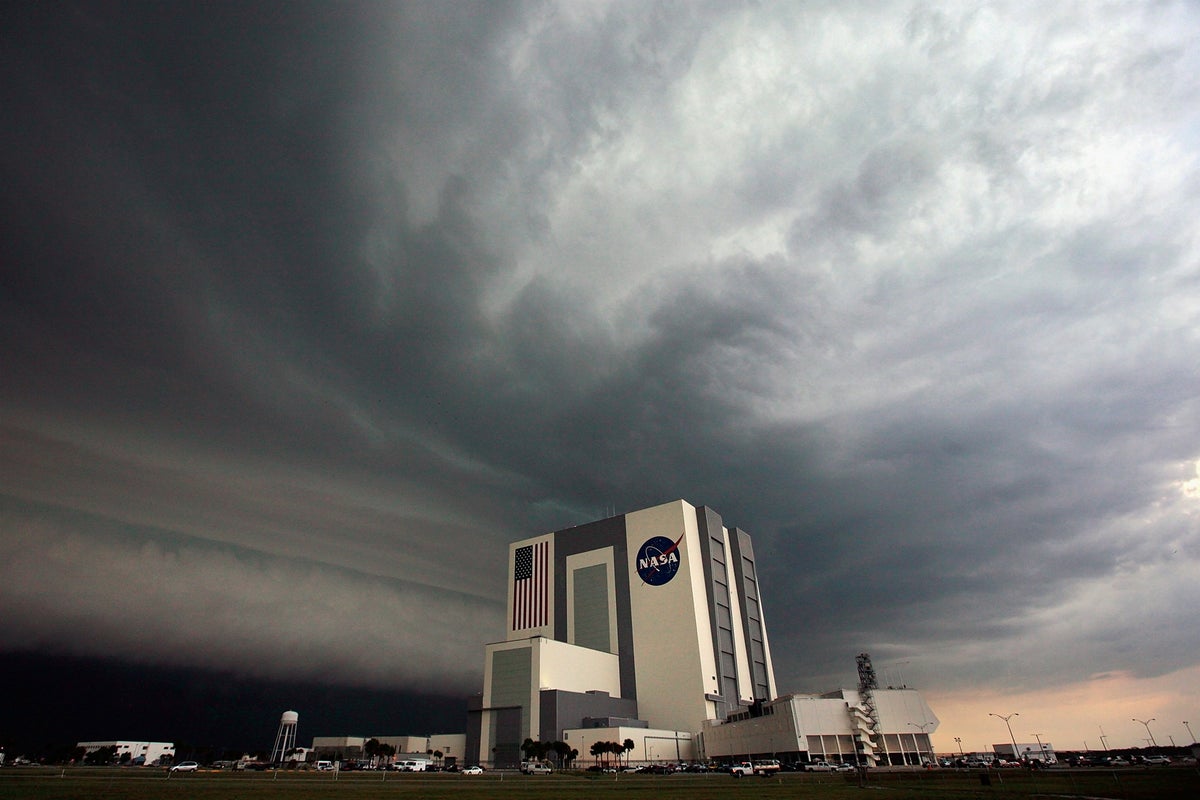 More details: See here
More details: See here
Hurricane Ian was bearing down on Ft. Myers, Fla. My father, a Florida native and seasoned shelter-in-place hurricane survivor, texted me his grab-and-go list as he fled his home there: important paperwork, the dog, two outfits. ⁘I⁘m not taking any chances with this one,⁘ he said.
Days later⁘when the debris was finally cleared from the roads⁘we learned just how devastating this one had been. The roof of the concrete riverside bungalow was still there. Two walls held it up. Everything inside the house was gone, and every house on the block had been swept through. Cars were in the river. The lovely couple next door had been washed off their roof; rescuers found them days later clinging to debris in a nearby canal.
I was six months into my second astronomy postdoc then⁘the culmination of over a decade of work. I had overcome the odds, summited the mountain of academia to gain a place at the forefront of exoplanet science. All my dreams hung on the giant golden mirrors of NASA⁘s multibillion-dollar James Webb Space Telescope (JWST), which had returned its first stunning images only weeks prior. We had celebrated my success, on my last trip to my father⁘s house, as the golden trail of a Cape Canaveral rocket ripped a seam through the darkening skies. But even then, I had begun to wonder if my place among the stars meant that I was too far from the Earth.
Most of all, I think about those to come after me. Before Hurricane Ian, I had never questioned whether I was doing good in the world. Of course I was contributing as an astronomer⁘it felt noble, studying what we can never touch or use, science simply for the sake of curiosity. But afterwards, I had to ask myself whether it was enough. I could no longer shake the feeling that my work was insufficient, that I was so occupied by other planets that I couldn⁘t see the problems on mine.
Staving off climate change⁘s worst effects falls most immediately on the national governments and multinational corporations⁘fossil-fuel companies chief among them⁘that collectively brought us to this impasse. But after decades of ⁘top-down⁘ failures, we must take matters into our own hands⁘to push our warming world and ourselves onto a better trajectory from the ⁘bottom up.⁘ Yes, we must vote in our elections and with our dollars. But we must also find the bravery to follow those at the forefront of the fight, who are putting their lives and livelihoods on the line when they engage in acts of civil disobedience against the ecocidal status quo.
No comments:
Post a Comment